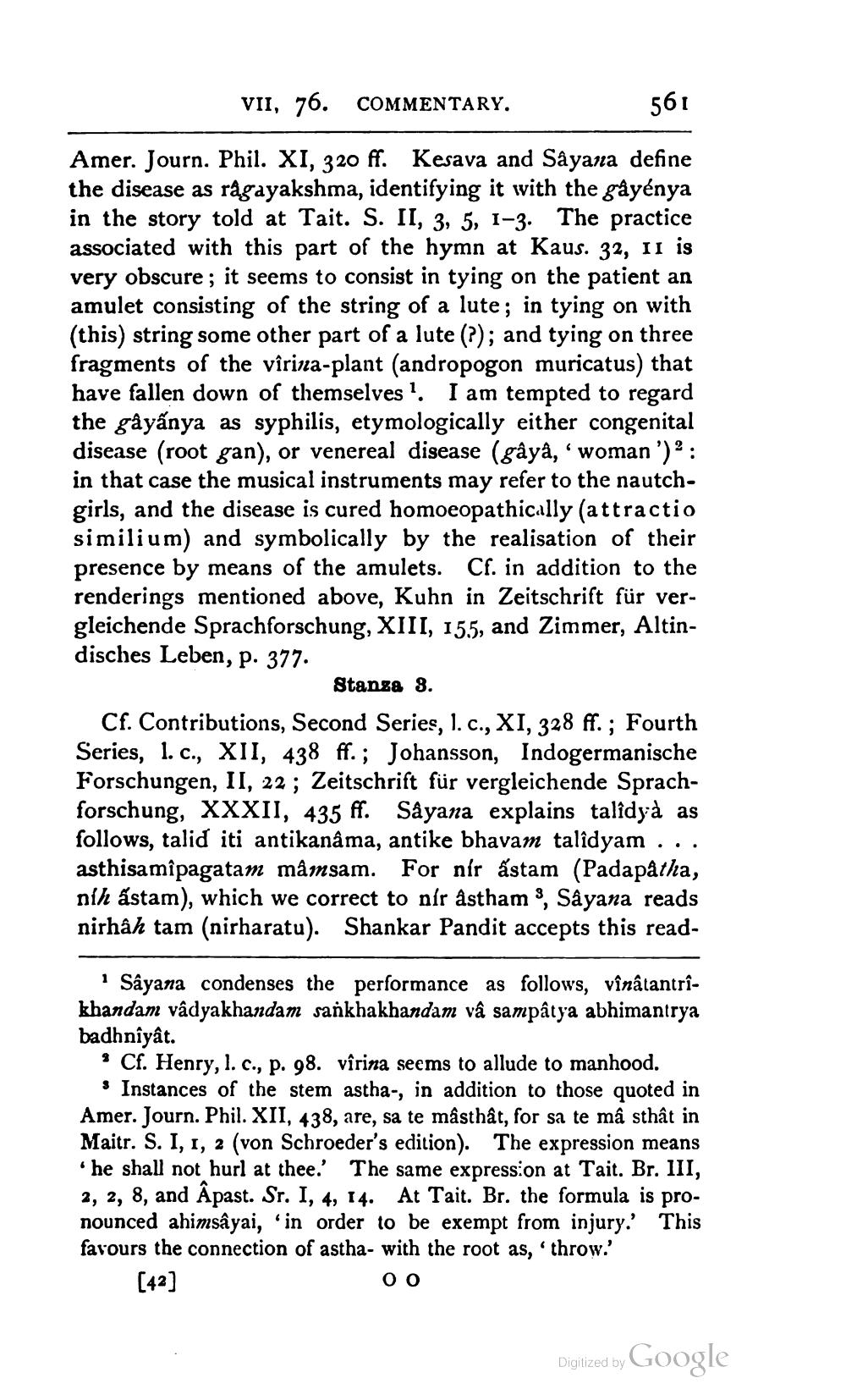________________
VII, 76. COMMENTARY.
561
Amer. Journ. Phil. XI, 320 ff. Kesava and Sayana define the disease as rågayakshma, identifying it with the gåyénya in the story told at Tait. S. II, 3, 5, 1-3. The practice associated with this part of the hymn at Kaus. 32, II is very obscure; it seems to consist in tying on the patient an amulet consisting of the string of a lute; in tying on with (this) string some other part of a lute(?); and tying on three fragments of the vîrina-plant (andropogon muricatus) that have fallen down of themselves. I am tempted to regard the gâyánya as syphilis, etymologically either congenital disease (root gan), or venereal disease (gâyå, 'woman')? : in that case the musical instruments may refer to the nautchgirls, and the disease is cured homoeopathically (attractio similium) and symbolically by the realisation of their presence by means of the amulets. Cf. in addition to the renderings mentioned above, Kuhn in Zeitschrift für vergleichende Sprachforschung, XIII, 155, and Zimmer, Altindisches Leben, p. 377.
Stanza 8. Cf. Contributions, Second Series, 1.c., XI, 328 ff.; Fourth Series, l. c., XII, 438 ff.; Johansson, Indogermanische Forschungen, II, 22; Zeitschrift für vergleichende Sprachforschung, XXXII, 435 ff. Såyana explains talîdyà as follows, talid iti antikanâma, antike bhavam talidyam ... asthisamîpagatam mâmsam. For nir ástam (Padapatha, níh ástam), which we correct to nir astham, Sayana reads nirhah tam (nirharatu). Shankar Pandit accepts this read
Sâyana condenses the performance as follows, vînâtantrikhandam vadyakhandam sankhakhandam vâ sampâtya abhimantrya badhniyât.
* Cf. Henry, l. c., p. 98. vîrina seems to allude to manhood.
9 Instances of the stem astha-, in addition to those quoted in Amer. Journ. Phil. XII, 438, are, sa te mâsthật, for sa te ma sthật in Maitr. S. I, 1, 2 (von Schroeder's edition). The expression means * he shall not hurl at thee.' The same expression at Tait. Br. III, 2, 2, 8, and Âpast. Sr. I, 4, 14. At Tait. Br. the formula is pronounced ahimsayai, in order to be exempt from injury. This favours the connection of astha- with the root as, 'throw.' [42]
00
Digized by Google




